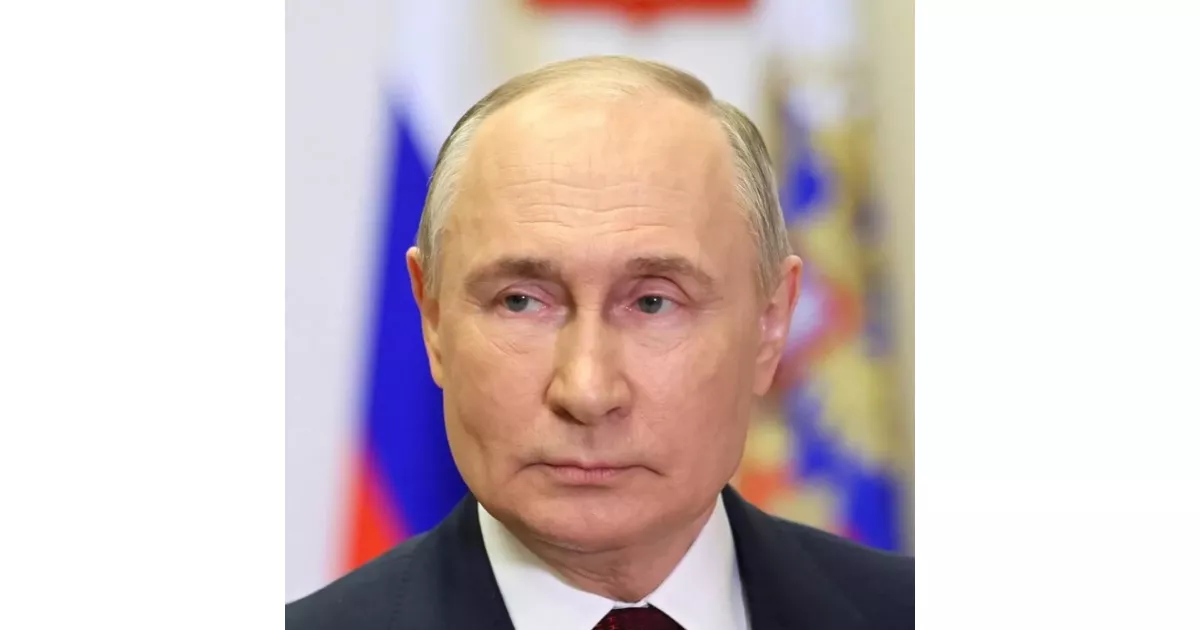Vladimir Vladimirovich Putin is a Russian politician and former intelligence officer. He has served as President of Russia since 2012, and previously from 2000 to 2008. He was also Prime Minister of Russia from 1999 to 2000 and again from 2008 to 2012. Often described as the de facto leader of Russia since 2000, Putin's long tenure has significantly shaped the country's political landscape and international relations.
1972: U.S. Withdraws from Anti-Ballistic Missile Treaty
In 1972, according to the Kremlin, the United States, under President George W. Bush, unilaterally withdrew from the Anti-Ballistic Missile Treaty, leading Putin to initiate a build-up of Russia's nuclear capabilities.
July 1983: Putin married Lyudmila Shkrebneva
On 28 July 1983, Putin married Lyudmila Shkrebneva.
April 1985: Birth of Maria Putina
On 28 April 1985, Maria Putina, Vladimir Putin's daughter, was born in Leningrad (now Saint Petersburg).
August 1986: Birth of Yekaterina Putina
On 31 August 1986, Yekaterina Putina, Vladimir Putin's daughter, was born in Dresden, East Germany (now Germany).
1987: Potential Violation of Intermediate-Range Nuclear Forces Treaty
Some analysts suggest that Russia's nuclear strategy under Putin potentially violated the 1987 Intermediate-Range Nuclear Forces Treaty.
1989: Freedom House warns of Russia's retreat from freedom
In 2004, Freedom House warned that Russia's "retreat from freedom marks a low point not registered since 1989, when the country was part of the Soviet Union".
1990: Paris Charter summit
In 1990 the Paris Charter summit convened governments, the U.S., and the Soviet Union as Communism crumbled across Eastern Europe.
1993: Putin's wife involved in a serious car crash
In 1993, Vladimir Putin's wife was involved in a serious car crash, which Putin stated contributed to his religious awakening.
August 1996: Fire burns down Putin's dacha
In August 1996, a life-threatening fire burned down Vladimir Putin's dacha, which he stated contributed to his religious awakening.
1996: Putin rebuilds dacha and creates Ozero cooperative
In 1996, after his dacha burned down, Putin built a new one identical to the original. He and a group of seven friends formally registered their fraternity as a cooperative society called Ozero, turning it into a gated community.
December 1999: "Russia at the Turn of the Millennium" Document Published
In December 1999, Putin's document, "Russia at the Turn of the Millennium", outlining his foreign policy objectives, appeared on the government's website.
1999: Punishment of Journalists Challenging Putin
According to Scott Gehlbach, since 1999, Putin has systematically punished journalists who challenge his official point of view.
May 2000: Decree Organizing Federal Subjects
On 13 May 2000, Vladimir Putin issued a decree organizing the 89 federal subjects of Russia into seven administrative federal districts, appointing a presidential envoy for each district.
July 2000: Putin meets Kim Jong Il in North Korea
In July 2000, Putin became the first Russian or Soviet leader to visit North Korea, meeting Kim Jong Il.
July 2000: Putin Gains Right to Dismiss Heads of Federal Subjects
In July 2000, Vladimir Putin gained the right to dismiss the heads of the 89 federal subjects, according to a law he proposed and the Federal Assembly of Russia approved.
2000: Putin co-authors "Learn Judo with Vladimir Putin"
In 2000, Vladimir Putin co-authored a book titled "Learn Judo with Vladimir Putin" in Russian.
2000: Putin elected President of Russia
Vladimir Putin has been nominated and elected as President of Russia all five times since 2000, typically under an independent banner.
2001: Putin awarded with civilian honors
Since 2001, Vladimir Putin has been awarded civilian honors from at least fifteen countries.
2002: Otto von Habsburg's criticism of Putin
In 2002, Otto von Habsburg, the last crown prince of Austria-Hungary, criticized Putin in a newspaper interview, warning of him as an "international threat".
March 2003: Birth of Elizaveta
Elizaveta, also known as Luiza Rozova, was born in March 2003.
2003: Otto von Habsburg's criticism of Putin
In 2003, Otto von Habsburg, the last crown prince of Austria-Hungary, criticized Putin in a speech, warning of him as "cruel and oppressive".
2003: Rose Revolution in Georgia
In 2003, the Rose Revolution in Georgia led to frictions in the relations of the country with Russia.
December 2004: Putin Criticizes Rose and Orange Revolutions
In December 2004, Putin criticized the Rose and Orange revolutions, saying that permanent revolutions risk plunging the post-Soviet space into endless conflict.
2004: Freedom House warns of Russia's retreat from freedom
In 2004, Freedom House warned that Russia's "retreat from freedom marks a low point not registered since 1989, when the country was part of the Soviet Union".
2004: Putin co-authors "Judo: History, Theory, Practice" in English
In 2004, Vladimir Putin co-authored a book titled "Judo: History, Theory, Practice" in English.
2005: Otto von Habsburg's criticism of Putin
In 2005, Otto von Habsburg, the last crown prince of Austria-Hungary, criticized Putin in a speech, warning of him as a "stone cold technocrat".
2005: Tulip Revolution in Kyrgyzstan
In 2005, the Tulip Revolution in Kyrgyzstan led to frictions in the relations of the country with Russia.
2005: Russia listed as 'not free' by Freedom House
Since 2005, Freedom House has listed Russia as being "not free".
2006: Incident of Putin kissing a boy's stomach
In 2006, Putin lifted the shirt of a boy to kiss his stomach without permission. Tatiana Mikhailova opines that virility is an aspect of the image of the Father of the Nation, which Putin wants to create.
2006: Putin's reported income
Putin's reported 2006 income totaled 2 million rubles (approximately $152,000).
August 2007: Russian Expedition plants flag on seabed at North Pole
In August 2007, the Russian expedition Arktika 2007, which was part of research related to the 2001 Russian territorial extension claim, planted a flag on the seabed at the North Pole as Putin sought to increase Russian territorial claims and military presence in the Arctic.
December 2007: Major Navy Sortie into the Mediterranean Announced
On 5 December 2007, during a meeting with Vladimir Putin, Russian defense minister Anatoliy Serdyukov announced that 11 ships, including the aircraft carrier Kuznetsov, would participate in the first major navy sortie into the Mediterranean since Soviet times.
2007: Komsomolskaya Pravda publishes shirtless photo of Putin
In 2007, Komsomolskaya Pravda published a large photograph of a shirtless Putin on vacation in Siberia with the headline "Be Like Putin", as part of cultivating a tough guy image.
2007: Putin Visits Indonesia, Signs Arms Deal
In 2007, Putin became the first Russian or Soviet leader to visit Indonesia in half a century, resulting in the signing of an arms deal.
2007: Putin Leads Successful Effort for Sochi Olympics
In 2007, Putin led a successful effort on behalf of Sochi for the 2014 Winter Olympics and the 2014 Winter Paralympics, the first Winter Olympic Games to ever be hosted by Russia.
2007: Named Time Person of the Year
In 2007, Putin was named Time Person of the Year.
2007: Claims of Putin's multi-billion dollar fortune
In 2007, the CIA estimated that Putin's fortune was around $40 billion, according to reports analyzed by Polygraph.info, which also referenced estimates from Western and Russian analysts.
2007: Putin's remarks on his religious beliefs
In 2007, when asked if he believes in God, Vladimir Putin stated that he would not share his beliefs with the public as it would be seen as self-advertising.
2007: Official figures released during the legislative election
Official figures released during the legislative election of 2007 put Putin's wealth at approximately 3.7 million rubles (US$280,000) in bank accounts, a private apartment in Saint Petersburg, and miscellaneous other assets.
April 2008: Moskovsky Korrespondent reports Putin's divorce and engagement
In April 2008, the Moskovsky Korrespondent reported that Putin had divorced Lyudmila and was engaged to marry Alina Kabaeva. The story was denied, and the newspaper was shut down shortly thereafter.
2008: Kazan Wins Bid for Summer Universiade
In 2008, the city of Kazan won the bid for the 2013 Summer Universiade.
2009: Putin gifts watches
In 2009, Putin gave a watch identified as a Blancpain to a Siberian boy he met while on vacation, and another similar watch to a factory worker.
2011: Photos from inside Putin's Palace are leaked
In 2011, photos from inside Putin's Palace were leaked onto the Internet, which were later compared to the floorplan given by a contractor in Alexei Navalny's 2021 investigation.
2011: Ramzan Kadyrov's statement about Putin saving the Chechen people and Russia
Prior to 2011, Chechen Republic head Ramzan Kadyrov stated that Putin saved both the Chechen people and Russia.
2011: The Economist Intelligence Unit rated Russia as "authoritarian"
Since 2011, The Economist Intelligence Unit has rated Russia as "authoritarian", whereas it had previously been considered a "hybrid regime".
May 2012: Russia Enacts Restrictive Laws After Putin's Reelected as President
In May 2012, after Putin was reelected as president, Russia enacted many restrictive laws, started inspections of non-governmental organizations, harassed, intimidated and imprisoned political activists, and started to restrict critics, according to a report by Human Rights Watch.
August 2012: Critics list Putin's numerous residences
In August 2012, critics of Putin listed the ownership of 20 villas and palaces, nine of which were built during Putin's 12 years in power.
2012: Crackdown on Liberal Media After Putin's Return to the Kremlin
In 2012, Maria Lipman noted that the crackdown following Putin's return to the Kremlin extended to the liberal media, which had previously operated fairly independently.
2012: Patriarch Kirill Endorses Putin's Election
In 2012, Patriarch Kirill of Moscow endorsed Putin's election, stating his terms were like "a miracle of God," marking close collaboration between Putin and the Russian Orthodox Church.
2012: Birth of Putin's grandson through Maria
In 2012, Putin had a grandson born through his daughter Maria.
2012: Putin's reported income
In 2012, Putin reported an income of 3.6 million rubles ($270,000).
2012: Allegations of "Putin's Palace" construction
In 2012, Sergei Kolesnikov, a former business associate of Putin's, alleged that he had been ordered to oversee the building of a massive Italianate-style mansion, dubbed "Putin's Palace", for Putin's private use.
2012: Putin awarded eighth dan of black belt
In 2012, Vladimir Putin was awarded the eighth dan of the black belt, becoming the first Russian to achieve this status.
2012: Adoption of "foreign agent" legislation
In 2012, legislation regarding "foreign agents" was adopted.
2012: Founding of Izborsky Club
In 2012, the Izborsky Club was founded by Alexander Prokhanov, stressing Russian nationalism and opposition to liberal ideas, under Putin's promotion of conservative policies.
June 2013: Putin and Lyudmila announce their marriage is over
On 6 June 2013, Putin and Lyudmila announced that their marriage was over.
2013: Forbes ranked Putin the World's Most Powerful Individual
Forbes ranked Putin the World's Most Powerful Individual in 2013.
2013: Putin States Gay Athletes Would Not Face Discrimination at Sochi Olympics
In 2013, Putin stated that gay athletes would not face any discrimination at the 2014 Sochi Winter Olympics.
2013: Russia's Ranking in Freedom of the Press
In 2013, Reporters Without Borders ranked Russia 148 out of 179 countries in terms of freedom of the press, criticizing the crackdown on the political opposition and the failure to bring to justice criminals who have murdered journalists.
February 2014: Ousting of Ukrainian President Viktor Yanukovych
After the Russian annexation of Crimea, Putin said that the February 2014 ousting of Ukrainian President Viktor Yanukovych had been orchestrated by the West as an attempt to weaken Russia.
March 2014: Russian Federation Annexed Crimea
Following the Revolution of Dignity in March 2014, the Russian Federation annexed Crimea.
April 2014: Kremlin confirms Putin's divorce
On 1 April 2014, the Kremlin confirmed that Putin's divorce had been finalised.
July 2014: Putin States Russia Will Use Entire Arsenal to Protect Russian Speakers Outside Russia
In a July 2014 speech during a Russian-supported armed insurgency in Eastern Ukraine, Putin stated he would use Russia's "entire arsenal of available means" up to "operations under international humanitarian law and the right of self-defense" to protect Russian speakers outside Russia.
2014: Death of Putin's dog Konni
In 2014, Konni, one of the five dogs received by Vladimir Putin from various national leaders, died.
2014: Sochi Hosts Winter Olympics and Paralympics
In 2014, Sochi hosted the Winter Olympics and Paralympics, the first time Russia hosted the Winter Olympic Games, after Putin's successful effort in 2007.
2014: Putin rewarded eighth-degree karate black belt
In 2014, Vladimir Putin was rewarded an eighth-degree karate black belt.
2014: Kissinger on the West demonizing Putin
In 2014, former U.S. secretary of state Henry Kissinger wrote that the West has demonized Putin.
2015: Larry Diamond on Russia not being a democracy
According to political scientist Larry Diamond, writing in 2015, "no serious scholar would consider Russia today a democracy".
2015: Kabaeva reportedly gives birth to a daughter
In 2015, Kabaeva reportedly gave birth to a daughter by Putin; this report was denied.
2015: Named No. 1 on Time's Most Influential People List
In 2015, Putin was ranked No. 1 on Time's Most Influential People List.
2015: Levada Center director's statement on Russian poll results
In 2015, the director of the Levada Center stated that drawing conclusions from Russian poll results or comparing them to polls in democratic states was irrelevant due to the lack of real political competition and state-controlled media.
April 2016: Putin's associates named in Panama Papers leak
In April 2016, the Panama Papers leak revealed that close associates of Putin owned offshore companies worth US$2 billion in total, raising questions about the possibility of Putin's family profiting from this money.
2016: Forbes ranked Putin the World's Most Powerful Individual
Forbes ranked Putin the World's Most Powerful Individual in 2016.
2016: Putin described as the 'Tsar of corruption'
In 2016, opposition activist Alexei Navalny described Putin as the "Tsar of corruption".
2016: Russia Boosts Relations with the Philippines
In 2016, the relations between Russia and the Philippines received a boost as Putin forged closer bilateral ties with his Filipino counterpart, Rodrigo Duterte.
2017: Publication of "Red Hangover: Legacies of Twentieth-Century Communism"
In 2017, Kristen Ghodsee argued in her book "Red Hangover: Legacies of Twentieth-Century Communism" that Western powers' triumphalism and the linking of leftist ideals with Stalinism allowed neoliberalism to fill the void, undermining democratic institutions and reforms in the former Eastern Bloc, contributing to the rise of Putin's right-wing nationalism.
2017: Putin Criticizes Violence in Myanmar
In 2017, Putin criticized violence in Myanmar against the Rohingya minorities.
2017: Birth of Putin's grandson and granddaughter
In 2017, Putin had a grandson through Maria and a granddaughter through Katerina.
December 2018: Autocephaly of Ukrainian Orthodox Church and Schism of Russian Orthodox Church
With the attainment of autocephaly by the Ukrainian Orthodox Church in December 2018 and subsequent schism of the Russian Orthodox Church from Constantinople, a number of experts came to the conclusion that Putin's policy of forceful engagement in post-Soviet republics significantly backfired on him, leading to a situation where he "annexed Crimea, but lost Ukraine".
2018: Forbes on Putin's actions as a dictator
Following the jailing of Alexei Navalny in 2018, Forbes wrote that "Putin's actions are those of a dictator... As a leader with failing public support, he can only remain in power by using force and repression that gets worse by the day".
2018: Forbes ranked Putin the second most powerful individual
In 2018, Forbes ranked Putin as the second most powerful individual.
2018: Allegation of sensory room in Putin's residence
In 2018, the Russian political magazine Sobesednik alleged that Vladimir Putin had a sensory room installed in his private residence in the Novgorod Oblast.
September 2019: Treaty on friendship signed between Russia and Mongolia
In September 2019, Putin and his Mongolian counterpart signed a permanent treaty on friendship between the two states.
2019: Kabaeva reportedly gives birth to twin sons
In 2019, Kabaeva reportedly gave birth to twin sons by Putin.
June 2020: Political Prisoners in Russia
As of June 2020, per the Memorial Human Rights Center, there were 380 political prisoners in Russia, including 63 individuals prosecuted, directly or indirectly, for political activities (including Alexey Navalny) and 245 prosecuted for their involvement with one of the Muslim organizations that are banned in Russia. 78 individuals on the list, i.e., more than 20% of the total, are residents of Crimea.
September 2020: UAC Receives Government Support Package
In September 2020, the general director of the United Aircraft Corporation (UAC) announced that the UAC would receive the largest-ever post-Soviet government support package for the aircraft industry to pay and renegotiate debt.
November 2020: Proekt investigation alleges Putin has another daughter
In November 2020, an investigation by Proekt alleged that Putin has another daughter, Elizaveta, also known as Luiza Rozova.
2020: Putin signs law on labelling individuals and organizations receiving funding from abroad as "foreign agents"
In 2020, Putin signed a law on labelling individuals and organizations receiving funding from abroad as "foreign agents", an expansion of legislation adopted in 2012.
2020: Putin Supports Efforts to Reduce Abortions
In 2020, Putin supported efforts to reduce the number of abortions in Russia instead of prohibiting it, differing from the stance of the Russian Orthodox Church.
2020: Putin Supported 2020 Russian Constitutional Referendum
In 2020, Putin supported the 2020 Russian constitutional referendum, which passed and defined marriage as a relationship between one man and one woman in the Constitution of Russia.
2020: Abe Resigns without Japan-Russia Territorial Dispute Agreement
In 2020, despite numerous meetings between Putin and Prime Minister Shinzo Abe, no agreement was signed regarding the Japan-Russia territorial disputes before Abe's resignation.
January 2021: Navalny accuses Putin of building estate with fraudulently obtained funds
On January 19, 2021, Alexei Navalny and the Anti-Corruption Foundation (FBK) published a video investigation accusing Putin of using fraudulently obtained funds to build an estate for himself.
November 2021: The Economist on Putin's shift from autocracy to dictatorship
In November 2021, The Economist also noted that Putin had "shifted from autocracy to dictatorship".
November 2021: Burns observed Putin personally
In November 2021, William Burns, who had previously been U.S. ambassador to Russia, had a personal meeting and observed Putin personally.
March 2022: Putin removed from IJF positions
In March 2022, Vladimir Putin was removed from all positions in the International Judo Federation (IJF) due to the Russian war in Ukraine.
April 2022: Speculation about Putin having Parkinson's disease
In April 2022, The Sun reported, based on video footage, that Vladimir Putin might have Parkinson's disease. This speculation, not supported by medical professionals, has spread in part due to Russia's invasion of Ukraine.
July 2022: CIA Director states there's no evidence of Putin's instability or bad health
In July 2022, the director of the U.S. Central Intelligence Agency, William Burns, stated that they had no evidence to suggest Vladimir Putin was unstable or in bad health. This statement was made because of increasing unconfirmed media speculation about Putin's health.
2022: Swiss media reports Kabaeva gave birth to a boy
In 2022, Swiss media, citing the couple's Swiss gynecologist, wrote that on both occasions Kabaeva gave birth to a boy.
2022: International Condemnation Following the Invasion of Ukraine
In 2022, following mounting civilian casualties during the Russian invasion of Ukraine, U.S. president Joe Biden called Putin a war criminal and "murderous dictator". The Ukrainian envoy to the United Nations, Sergiy Kyslytsya likened Putin to Adolf Hitler.
2022: Revocation of some of Putin's honorary awards
In 2022, some of the honorary doctorates and other awards that Vladimir Putin had received from organizations across the world were revoked in response to the Russian invasion of Ukraine.
2022: Anna Borshchevskaya Summarizes Putin's Foreign Policy Objectives
In her 2022 book, Anna Borshchevskaya summarizes Putin's main foreign policy objectives as originating in his 1999 document, which appeared on the government's website, "Russia at the Turn of the Millennium".
2022: Invasion of Ukraine
Since the 2022 invasion of Ukraine, Putin has only once granted an interview to a Western journalist, namely Tucker Carlson in February 2024.
June 2023: Levada poll results on potential votes for Putin
In June 2023, a poll by the independent Levada organization indicated that 42% of respondents would vote for Putin in the 2024 presidential election.
September 2023: VTsIOM poll on support for the war
In September 2023, the head of the VTsIOM state pollster Valery Fyodorov mentioned that only 10–15% of Russians actively supported the war, and that "most Russians are not demanding the conquest of Kyiv or Odesa".
November 2023: VCIOM poll on potential votes for Putin
In November 2023, a public opinion poll by the state-owned institution VCIOM, found that 37.3% of respondents would vote for Putin.
November 2023: Putin Urges Russian Women to Have More Children
On 28 November 2023, during a speech to the World Russian People's Council, Putin urged Russian women to have "seven, eight, or even more children" and said "large families must become the norm, a way of life for all of Russia's people".
February 2024: Putin Grants Interview to Tucker Carlson
In February 2024, since the 2022 Ukraine invasion, Putin granted an interview to Tucker Carlson, marking his first interview with a Western journalist.
March 2024: VCIOM poll on potential votes for Putin
According to a VCIOM poll conducted in early March 2024, 56.2% of respondents would vote for Putin.
March 2024: Crocus City Hall attack
In March 2024, the Crocus City Hall attack occurred in Russia, resulting in 145 deaths and 551 injuries. This was the deadliest terrorist attack on Russian soil since the Beslan school siege in 2004.
May 2024: Putin's Fifth Inauguration and Defense Minister Replacement
In May 2024, Vladimir Putin was inaugurated as president of Russia for the fifth time. Also in May 2024, Sergei Shoigu was replaced by Andrey Belousov as defense minister, signaling a shift towards a war economy in preparation for a prolonged conflict.
August 2024: Putin Pardons Gershkovich and Others in Prisoner Swap
In August 2024, Vladimir Putin pardoned American journalist Evan Gershkovich, along with opposition figures Vladimir Kara-Murza and Ilya Yashin, among others, in a prisoner swap with Western countries. This 2024 Ankara prisoner exchange was the most extensive between Russia and the United States since the end of the Cold War, involving the release of 26 people.
September 2024: Putin's Nuclear Retaliation Warning
In September 2024, Vladimir Putin warned the West that Russia would consider nuclear retaliation if attacked with conventional weapons, seemingly deviating from the no first use doctrine. Putin also threatened nuclear powers that supporting attacks on Russia would be considered participation in aggression.
2024: Putin achieves 88% of the popular vote in the Russian presidential election
In the most recent 2024 Russian presidential election, Putin achieved 88% of the popular vote. There were reports of irregularities at this election, including ballot stuffing and coercion.
March 2025: Foer of The Atlantic said that the 21st century was the "Age of Vladimir Putin"
In March 2025, Franklin Foer of The Atlantic said that the 21st century was the "Age of Vladimir Putin".
April 2025: Trump Criticizes Putin and Calls for Peace
In April 2025, US President Donald Trump criticized Vladimir Putin's determination to continue the war against Ukraine, citing the high death toll and calling for a peace deal. Putin rejected a proposal for an unconditional 30-day ceasefire.
May 2025: Putin Approves Coal Industry Bailout Plan
In May 2025, Vladimir Putin approved Alexander Novak's coal industry bailout plan.
May 2025: Putin Attends Victory Day Parade with Foreign Leaders
In May 2025, Vladimir Putin attended the Victory Day parade in Moscow alongside Chinese President Xi Jinping, Brazilian President Lula da Silva, and other foreign leaders.
May 2025: Russian and Ukrainian Delegations Hold Direct Talks in Istanbul
On 15 May 2025, Russian and Ukrainian delegations held direct talks in Istanbul for the first time since early 2022. As a condition for peace, Putin called on Ukraine to abandon four partially occupied Ukrainian regions that Russia has annexed but not conquered, and listed other demands. He rejected calls for an unconditional ceasefire and escalated attacks on Ukraine.
June 2025: Putin Condemns Trump's Strikes on Iranian Nuclear Sites
On 22 June 2025, Vladimir Putin condemned Donald Trump's strikes on Iranian nuclear sites as an "unprovoked act of aggression," while also authorizing Russian strikes against Ukraine.
July 2025: Estimated Russian Casualties in Ukraine War Reach 1 Million
As of July 2025, the estimated Russian casualties in the war with Ukraine were reported to be 1 million.
October 2025: Putin States Sanctions Will Not End War and Demands Territory
In October 2025, Vladimir Putin stated that the United States government's sanctions against Russia's largest oil companies, Rosneft and Lukoil, would not force him to end the war in Ukraine. He also demanded that Ukraine cede territory in the Donbas to Russia in exchange for a peace deal.
Mentioned in this timeline

Donald John Trump is an American politician media personality and...
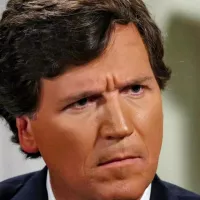
Tucker Carlson is an American right-wing political activist and commentator...
Ukraine is a country in Eastern Europe the second-largest on...

Hillary Diane Rodham Clinton is a prominent American politician lawyer...

George W Bush the rd U S President - is...
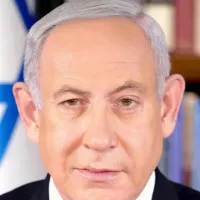
Benjamin Bibi Netanyahu is a prominent Israeli politician and diplomat...
Trending
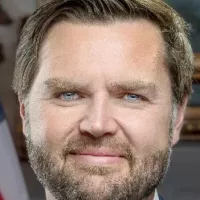
12 minutes ago Trump Considers Vance, Rubio for 2028; MAGA Heirs Guess Future Plans.
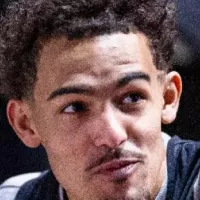
12 minutes ago Trae Young's Return to Atlanta and Approaching Wizards Debut Excites Fans
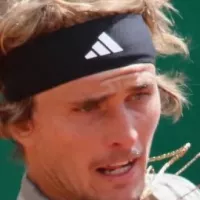
12 minutes ago Alexander Zverev reveals diabetes, plans harder hitting for 2026 tennis success.
13 minutes ago Cason Wallace shines under pressure; Thunder unlock his potential after breakout game.
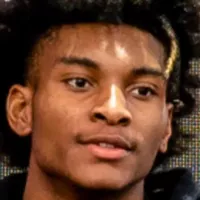
13 minutes ago Bucks' young guards: Kevin Porter Jr., Cam Thomas, and their roles with Giannis.
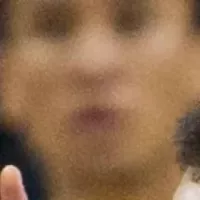
3 days ago Tyler Herro Returns to Heat with a Flak Jacket, Hawks Defeated
Popular

Jesse Jackson is an American civil rights activist politician and...

Susan Rice is an American diplomat and public official prominent...

Barack Obama the th U S President - was the...

Michael Joseph Jackson the King of Pop was a highly...

Bernie Sanders is a prominent American politician currently serving as...

XXXTentacion born Jahseh Dwayne Ricardo Onfroy was a controversial yet...
